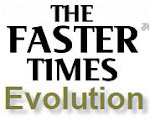I decided to take a short break from scratching my chigger bites to recommend a paper on ecology. The paper reviews the links between biodiversity and ecosystem function, and does an excellent job of clarifying some of the commonly held misconceptions about species diversity.
For instance one of the diversity flavored misconceptions that I encounter on a regular basis centers on the notion that species richness (the count of the different species present at a given location) is the preeminent indicator of ecological stability, quality or “value.”
Yes, richness is absolutely an important measure of a system’s health, however it is just one metric, and even if – during an assessment - one is able to identify a species list two-miles long, there are other factors that need to be considered prior to making a “value – based” determination. After all, the study of ecology should center on evaluating the processes, cycles and organismal traits that drive the actual functionality (energetics, nutrient processing, trophic interactions, etc…) of the system at hand.
It’s all about the interactions.
In other words, although having a large variety of species in an ecosystem is generally a good thing, there is always going to be some redundancy built in; some species have a higher “value” than others, some contribute less to the foodweb, some more…
So, is diversity important - yes! But not only diversity in nominal place holders, what’s important is a diversity of ecological functions. Do the traits of those present facilitate the system? Are there traits lacking in the system that, if present, would bring enhancement? What are these traits, and how can they be measured?
The recommended paper:
Reiss, J., Bridle, J., Montoya, J., & Woodward, G. (2009). Emerging horizons in biodiversity and ecosystem functioning research Trends in Ecology & Evolution, 24 (9), 505-514 DOI: 10.1016/j.tree.2009.03.018
NOTE: I don’t intend the above to deride any particular species; all have ecological “value” beyond the aesthetic. My point is simply that the concept of species diversity and its associated measure, species richness, can sometimes be mishandled.
Sort of a minor pet peeve of mine, like ecologists that think of ecological succession as a predetermined, unavoidable “potential” towards which all communities strive. This, despite the conflicting and limiting physical conditions in which the community currently resides; but that’s another rant...
Tuesday, September 15, 2009
Subscribe to:
Post Comments (Atom)





























Hey, nice blog you have here. I just happened to read this paper recently as I am trying to incorporate some of these ideas into my project.
ReplyDeleteThe concept of species redundancy is very interesting, especially in the context of resilience. I like the idea of built-in redundancy in an ecosystem as a buffer against disturbance.
Thanks myrmician, I appreciate the comment. I checked-out your blog as well - very nice. The macro is amazing. I've added you to my blogRoll.
ReplyDeleteI'm with you on redundancy, not only as a buffer against disturbance, but also as a possible tool for restoration following a disturbance event. With improved knowledge of similiar functioning species, we may be able to better mitigate for functional losses in a system.
I gotta hand it to whoever wrote this, you've really kept me updated! Now, let's just hope that I can come across another blog just as interesting :)
ReplyDeleteTerm papers